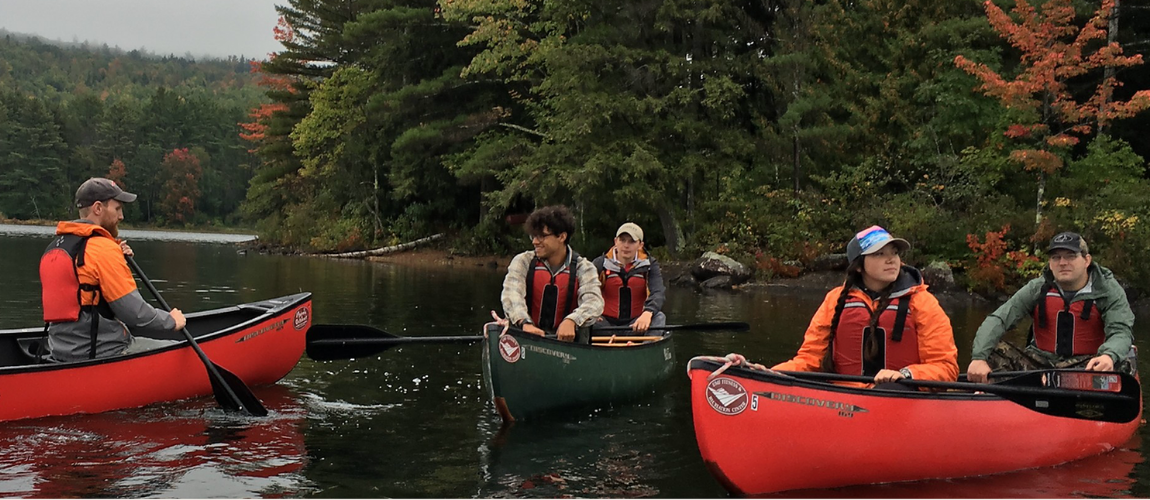Fieldwork complements the instruction and research that UMF students experience on-campus in classrooms and laboratories. It offers students the opportunity to conduct experiments and make observations in the field that simulate the type of work students may choose to pursue in their careers in a wide range of fields, from archeology to zoology.
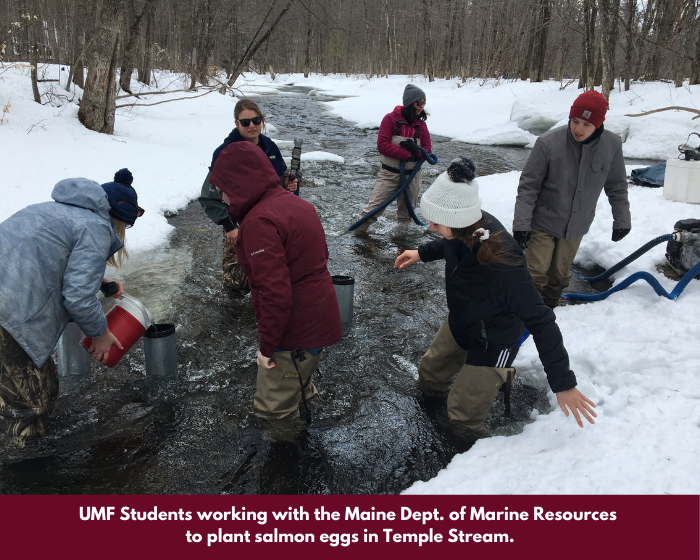
Putting a historical spin on Marine Biology, students in Prof. Nancy Prentiss’ Honors course studied the connection between migratory fish and those of Ancient Greece. Using the Atlantic Salmon as a model to learn about migratory species, UMF students collaborated with the Maine Department of Marine Resources to plant approximately 10,000 Atlantic salmon eggs in nearby Temple Stream. Reese Mertz (’23) described how exhilarating it was to participate in this field experience: “There was something about being out there in the water that brought a certain understanding to the spawning of salmon that a textbook or lecture fails to do. We were able to feel the struggle and lengths to which the salmon go through just to keep living. This allowed us to do something good for the environment, to learn in a new way, and to gain an experience that other students may miss out on if they only work in labs” on campus.
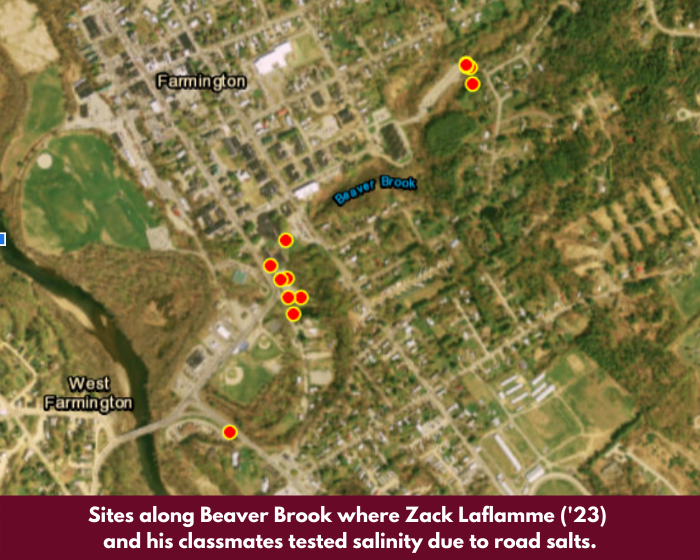
In light of the high amount of road salt usage during a Farmington winter, students in Prof. Jesse Minor’s Physical Geography course set out to discover if road salts had an adverse impact on the nearby Beaver Brook stream. Students began their fieldwork by traveling to various locations along the stream to collect data, taking into consideration various factors such as time of day, air, water, and snow temperature, relative humidity, wind speed, and direction. Based on the data they collected, the students concluded that there was a higher salinity level downstream, indicating where the road salt is most likely affecting nearby vegetation and wildlife. For Zack Laflamme (’23), the field experience “definitely enhanced the class because we were going outside and learning things about Farmington that you wouldn’t otherwise think about. Our fieldwork along with our class discussion made it all flow together.”
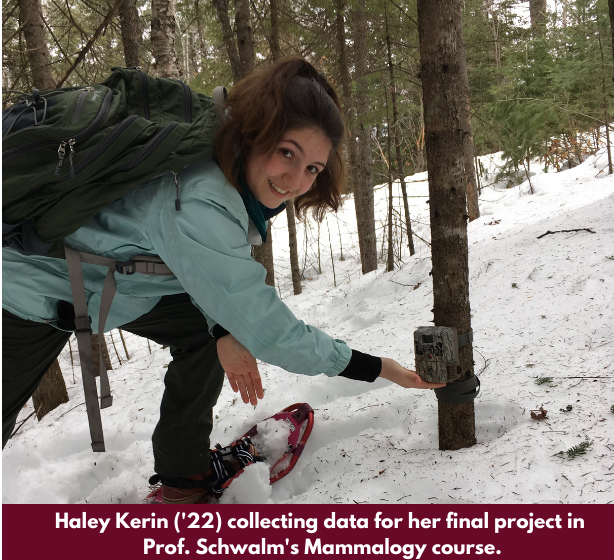
Students in Prof. Doni Schwalm’s Mammalogy course experience what it is like to conduct a professional field research project from start to finish, something that Haley Kerin (‘22) believes is still helping her in other courses almost two years later. The course begins with students developing a research proposal and budget that they use to help collect and analyze data. They then create a manuscript based on their findings in the format used for publication in a scientific journal. Haley credits this course with teaching her “many fieldwork skills and how to work with a group outside of a lab. Out in the field, I learned how to set up field cameras, take vegetation data samples, measure the amount of canopy cover, and properly set up scent lures away from a camera.”
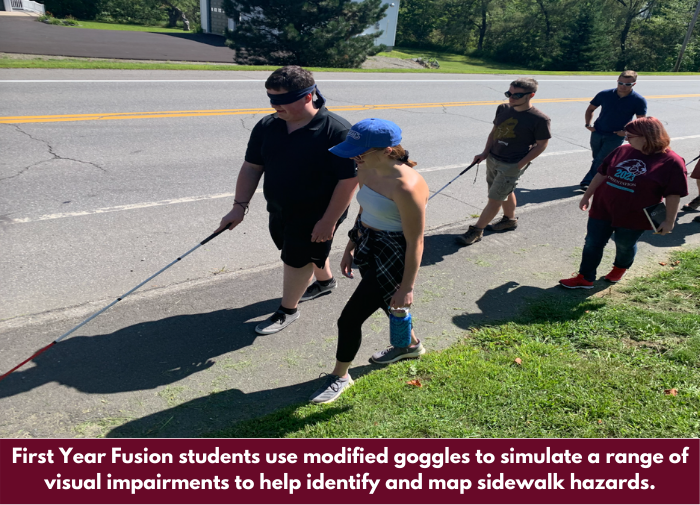
In an innovative twist on a traditional First-Year Seminar, UMF has developed a new First Year Fusion (FYF) program that permits students to begin their college career with an intensive week of fieldwork prior to kick off the Fall Semester. In August 2019, Geography Professors Matt McCourt and Jesse Minor helped pilot the program with a field experience that introduced incoming students to UMF alumni who are “Making Change in Maine,” the title of their FYF sections. Traveling around the State, the students met with UMF alumni like Esther Butler (‘14) who worked with the students to identify sidewalk hazards for the City of Monson, Maine by wearing modified goggles to simulate a range of visual impairments. The UMF students then mapped sidewalk hazards using a GIS application.
David Ballard (’22)
During the fall semester 2020, David Ballard gained first hand experience in Maine politics by working with the Political Action Committee (PAC) for Matt Pouliot in his race for a State Senate seat from Maine’s District 15. A jack of all trades, David’s responsibilities included political canvassing, making cold calls to voters, mailing letters to constituents, placing campaign signs and of course fundraising. As a result of his experience, David feels “a stronger connection to Maine issues and Maine politics. It also helped [him] find more empathy for other people and see views of people outside of what [he] has previously experienced.”


